Introduction to Prefabricated Construction and Lida Group
Prefabricated construction, often referred to as prefab construction, is a modern building method that involves manufacturing components of a structure in a controlled factory environment before transporting them to the construction site for assembly. This innovative approach contrasts sharply with traditional on-site construction, which typically requires extensive labor and time-consuming processes. By leveraging prefabrication, builders can significantly reduce project timelines, minimize waste, and enhance quality control.
The benefits of prefab construction are numerous and compelling. One of the most notable advantages is the speed at which projects can be completed. Since the majority of the work is done off-site, weather delays and other common on-site disruptions are minimized, allowing for faster completion times. Additionally, the controlled factory setting ensures consistent quality and precision, leading to higher standards of construction. This method also reduces material waste through optimized cutting and reuse practices, contributing to sustainability efforts.
Cost-effectiveness is another key benefit of prefab construction. With streamlined processes and reduced labor requirements, overall costs can be significantly lower compared to traditional methods. Moreover, the ability to construct multiple units simultaneously in a factory setting leads to economies of scale, further reducing expenses.
Lida Group stands out as a premier provider in the field of prefab construction, renowned for its commitment to innovation and excellence. With over two decades of experience, Lida Group has consistently delivered high-quality prefab solutions across various sectors, including residential, commercial, and industrial projects. Their expertise spans from initial design and planning to fabrication and installation, ensuring comprehensive support throughout the entire construction process.
What sets Lida Group apart is their dedication to customer satisfaction and sustainable practices. They employ advanced technologies and rigorous quality assurance measures to ensure each project meets the highest standards. From eco-friendly materials to energy-efficient designs, Lida Group integrates sustainability into every aspect of their operations. This holistic approach not only benefits clients but also contributes positively to the environment.
In summary, Lida Group’s leadership in prefab construction is characterized by their innovative techniques, stringent quality controls, and unwavering focus on sustainability. These attributes make them a trusted partner for any construction project seeking cost-effective, high-quality, and environmentally responsible solutions. As we delve deeper into their offerings and achievements, it becomes clear why Lida Group is synonymous with excellence in the construction industry.
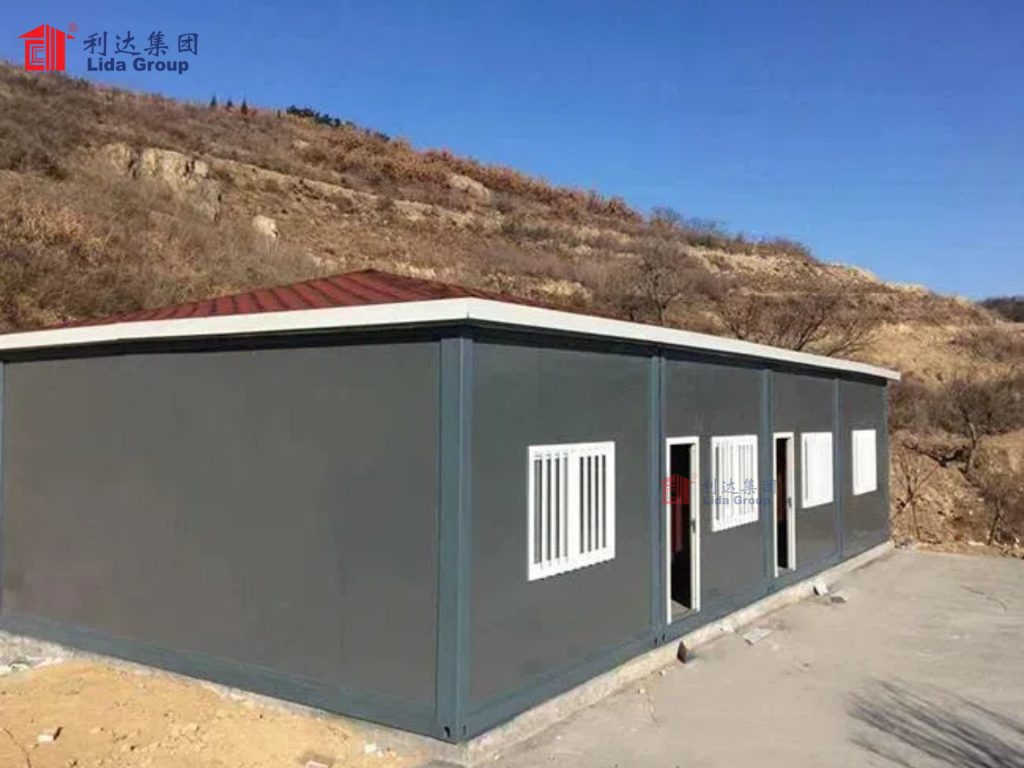
Key Features of Prefab Construction Solutions Offered by Lida Group
Lida Group’s prefab construction solutions are distinguished by several key features that set them apart in the industry. One of the most significant aspects is their structural integrity, which is achieved through meticulous engineering and the use of high-quality materials. Each component undergoes rigorous testing to ensure it can withstand various environmental conditions, guaranteeing durability and safety for years to come.
Another standout feature is the modularity of Lida Group’s prefab buildings. These structures can be easily customized and expanded based on specific project needs. Whether it’s adding additional rooms, adjusting layouts, or scaling up to larger facilities, the modular design allows for seamless integration and adaptability. This flexibility makes prefab buildings particularly suitable for projects that may require future modifications or expansions.
Transportability is yet another critical advantage offered by Lida Group. The prefabricated components are designed to be efficiently transported via truck, ship, or rail, enabling rapid deployment to virtually any location. Once on-site, these modules can be quickly assembled using minimal equipment, significantly reducing construction timelines and associated costs. This mobility is especially beneficial for remote or hard-to-reach areas where traditional construction methods would be impractical.
Sustainability is a cornerstone of Lida Group’s prefab construction philosophy. They prioritize the use of eco-friendly materials and implement energy-efficient designs, such as incorporating solar panels and advanced insulation systems. These green initiatives help reduce the carbon footprint of each project while lowering operational costs for clients. Furthermore, the controlled factory environment minimizes waste and promotes recycling, aligning with broader sustainability goals.
Quality control is rigorously enforced throughout the entire production process. From raw material inspections to final product evaluations, every step is meticulously monitored to ensure consistency and reliability. Advanced technology, including automated machinery and robotic arms, enhances precision during manufacturing, resulting in superior craftsmanship. This attention to detail translates to long-lasting, high-performance buildings that meet and exceed industry standards.
Lastly, the aesthetic appeal of Lida Group’s prefab constructions should not be overlooked. Despite being prefabricated, these buildings can be tailored to reflect diverse architectural styles and client preferences. Customizable exteriors and interiors allow for unique, visually appealing designs that enhance the overall value and functionality of the space. Whether it’s sleek modern lines or more traditional motifs, Lida Group offers endless possibilities to create spaces that resonate with both form and function.
In conclusion, Lida Group’s prefab construction solutions offer a combination of structural integrity, modularity, transportability, sustainability, and aesthetic customization. These features collectively contribute to creating flexible, durable, and cost-effective structures that cater to a wide range of applications. Clients can expect reliable, high-quality buildings that not only meet their immediate needs but also provide long-term value and environmental benefits.
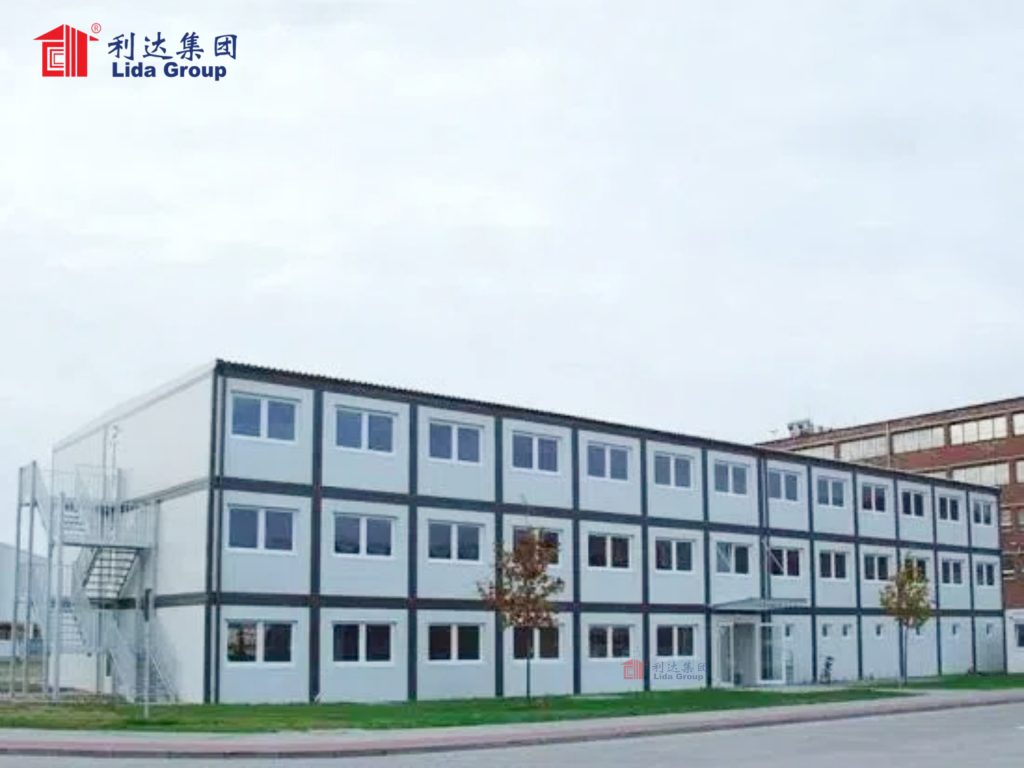
Detailed Manufacturing Process of Lida Group’s Prefab Buildings
The manufacturing process at Lida Group is a meticulous journey that begins with detailed planning and ends with high-quality prefab buildings ready for deployment. This process is underpinned by advanced technology, rigorous quality control measures, and a commitment to sustainable practices. Here’s an in-depth look at how Lida Group transforms raw materials into functional and aesthetically pleasing prefab structures:
-
Initial Consultations and Design Phase: Every project starts with thorough consultations between Lida Group’s experts and the client. During this phase, the team gathers all necessary information about the project scope, budget constraints, and specific requirements. Using Computer-Aided Design (CAD) software, engineers develop detailed blueprints and 3D models that visualize the proposed structure. These digital plans serve as the foundation for subsequent steps, ensuring alignment with the client’s vision and technical specifications.
-
Material Selection and Procurement: Lida Group places a strong emphasis on selecting eco-friendly and high-performance materials. Raw materials undergo stringent inspection processes to verify compliance with industry standards. Sustainable options like recycled steel, low-VOC paints, and energy-efficient insulation are prioritized. Once approved, these materials are procured and prepared for the manufacturing line.
-
Component Fabrication: In state-of-the-art factories equipped with advanced machinery, the prefabrication process begins. Automated cutting machines and robotic arms precisely shape and assemble metal frames, walls, and roofing components. CNC machines ensure accuracy in drilling holes and fitting joints, while welding robots perform seamless connections. This level of automation minimizes human error and enhances the structural integrity of each module.
-
Quality Control Measures: Quality assurance is embedded throughout the manufacturing stages. Inspections occur at multiple checkpoints, starting from the receipt of raw materials to the final assembly of components. Technicians conduct detailed assessments to detect any defects or deviations from the design specifications. Non-destructive testing methods, such as ultrasonic and radiographic inspections, are employed to verify the strength and durability of welds and connections. Any identified issues are promptly addressed to maintain the highest quality standards.
-
Assembly and Integration: After individual components pass quality checks, they are moved to the assembly area. Here, modules are systematically joined together, forming complete sections of the building. Special attention is given to sealing joints and ensuring waterproofing, crucial for maintaining interior comfort and preventing leaks. Electrical wiring, plumbing, and HVAC systems are integrated seamlessly during this stage, with smart sensors installed for real-time monitoring and maintenance alerts.
-
Final Inspection and Testing: Before dispatch, each prefab building undergoes a comprehensive final inspection. This includes functional tests to ensure all systems operate correctly, along with visual inspections to confirm aesthetic standards. Structural stability is verified through load-bearing tests, simulating real-world conditions to validate the building’s resilience. Documentation detailing installation procedures, user manuals, and maintenance schedules accompanies each shipment, providing clients with essential information for smooth setup and operation.
-
Transportation and On-Site Assembly: The completed modules are carefully loaded onto trucks, ships, or trains for transportation to the designated site. Upon arrival, a team of skilled technicians swiftly assembles the building according to the provided guidelines. Minimal site disruption is achieved through efficient logistics and pre-planning, ensuring a swift transition from delivery to occupancy.
In summary, Lida Group’s manufacturing process combines cutting-edge technology, stringent quality control, and sustainable practices to deliver high-performance prefab buildings. This holistic approach guarantees that each structure not only meets but exceeds client expectations, offering reliable, durable, and environmentally responsible solutions tailored to diverse project needs.
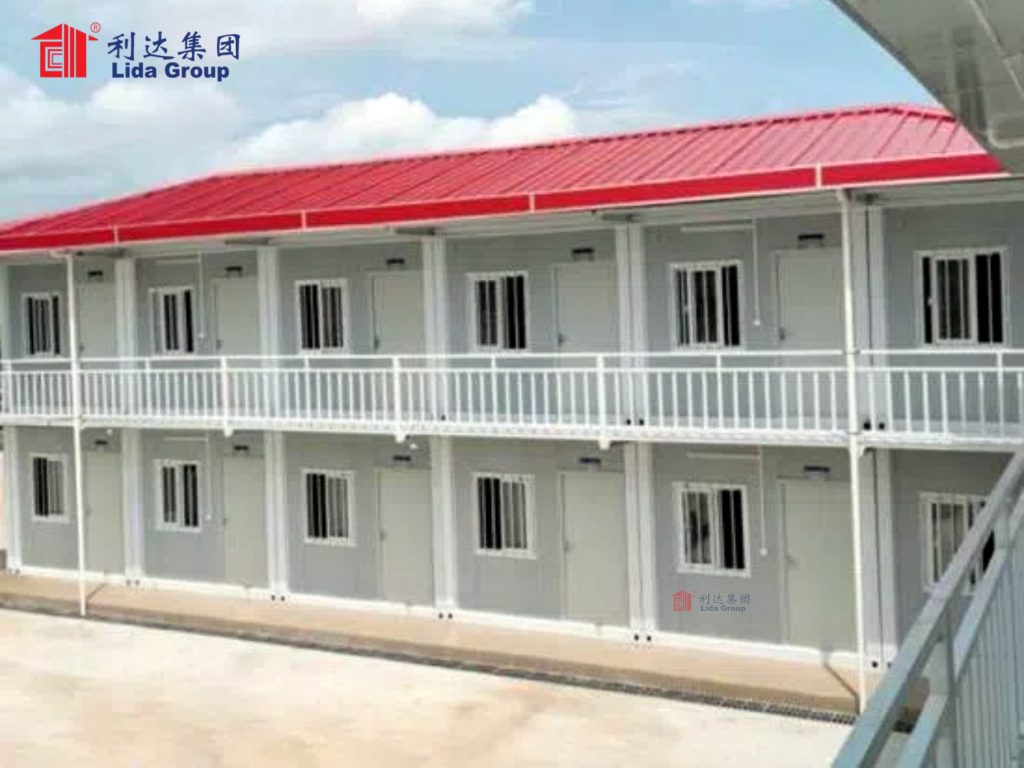
Applications of Prefab Construction Across Various Industries
Prefab construction, championed by Lida Group, finds widespread application across a multitude of industries, each benefiting from the unique advantages these structures offer. One prominent sector is the residential market, where prefab homes have become increasingly popular due to their cost-effectiveness, quick assembly, and customizable designs. Families looking for affordable housing solutions without compromising on quality find these homes ideal. The modular nature allows for easy expansion or modification, accommodating growing families or changing lifestyles.
Commercial enterprises also leverage prefab construction for office buildings, retail stores, and hospitality venues. Retail chains often utilize prefab structures for pop-up shops or seasonal stores, taking advantage of their portability and ease of setup. Similarly, hotels and restaurants can quickly establish new locations or expand existing ones using these adaptable units. The ability to customize interiors and exteriors ensures that these commercial spaces reflect brand identity and attract customers effectively.
Industrial settings benefit greatly from prefab construction, particularly for factories, warehouses, and storage facilities. These structures can be rapidly deployed to accommodate sudden increases in production demands or temporary storage needs. Their robustness and resistance to harsh environments make them suitable for heavy-duty applications, ensuring uninterrupted operations. Additionally, the scalability of these buildings allows companies to expand or reconfigure their facilities as business requirements evolve.
Educational institutions are increasingly turning to prefab construction for classroom expansions, administrative offices, and specialized training facilities. Schools facing overcrowding issues can quickly add new classrooms without disrupting ongoing activities. Universities can build research labs, student dormitories, or recreational centers within tight timelines, enhancing their capacity to support academic programs. The fast assembly process means students and staff can move into new spaces almost immediately, addressing urgent space shortages efficiently.
Healthcare providers also recognize the value of prefab construction for establishing medical clinics, laboratories, and patient wards. Mobile medical units can be dispatched to underserved regions or disaster-stricken areas, delivering timely healthcare services directly to communities in need. These structures can be equipped with essential medical facilities, including examination rooms, diagnostic equipment, and sterilization zones, ensuring a safe and hygienic environment for patients and staff alike. The flexibility of prefab buildings enables healthcare organizations to respond swiftly to fluctuating demand and emergencies.
Furthermore, governmental and non-profit organizations utilize prefab construction for public infrastructure projects, such as community centers, emergency shelters, and educational facilities in remote areas. These buildings provide vital resources and support, fostering social development and resilience in vulnerable communities. Their durability and adaptability make them suitable for various purposes, from disaster relief to long-term community engagement.
In summary, the versatility and adaptability of Lida Group’s prefab construction solutions make them indispensable assets across a wide array of industries. From residential and commercial applications to industrial, educational, healthcare, and public infrastructure projects, these structures offer practical, cost-effective solutions that enhance operational capabilities and foster innovation. Their proven track record of success underscores Lida Group’s role in meeting diverse client needs and driving forward the future of modular construction.
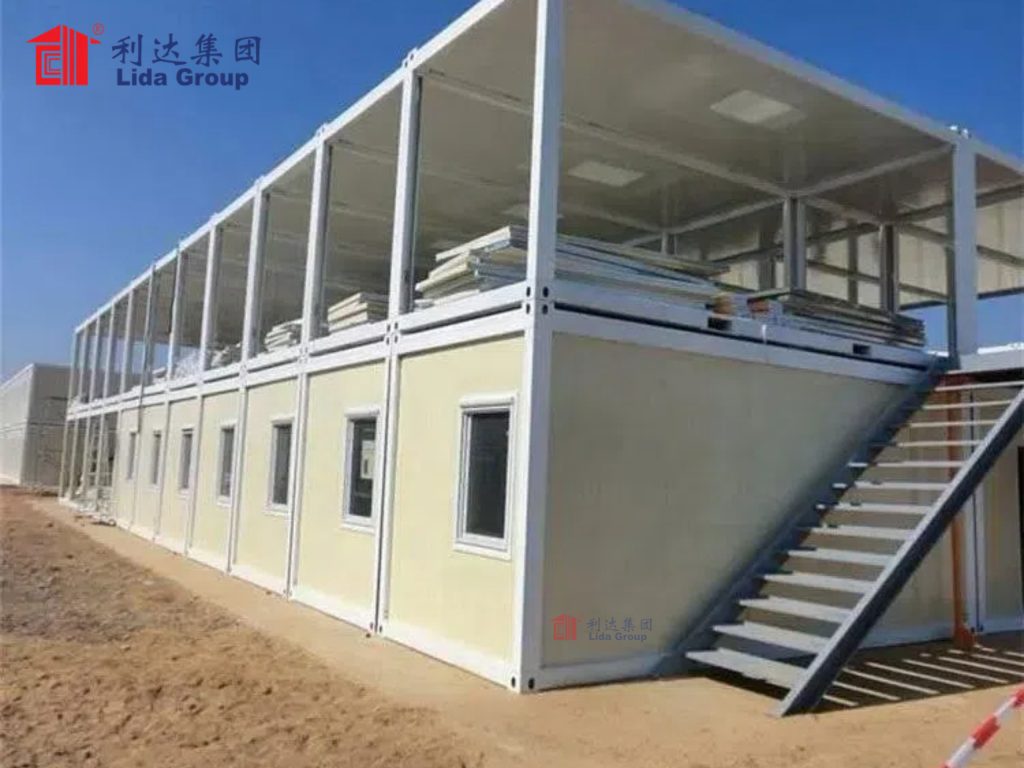
Case Studies: Successful Projects Utilizing Lida Group’s Prefab Construction
To truly appreciate the impact and effectiveness of Lida Group’s prefab construction solutions, it is illuminating to examine several successful case studies across different industries. These examples highlight the versatility, efficiency, and adaptability of these structures, demonstrating how they solve unique challenges and contribute to the success of various projects.
Residential Sector: Affordable Housing Solutions
In one notable instance, a local government sought to address the pressing issue of affordable housing in an urban area. Partnering with Lida Group, they embarked on a project to construct a series of prefab homes designed to be both cost-effective and sustainable. Within weeks, multiple family units were fabricated in Lida Group’s factory and transported to the site. The modular design allowed for rapid assembly, minimizing disruption to the neighborhood. Residents praised the high-quality finishes and energy-efficient features, such as solar panels and advanced insulation, which helped reduce utility costs. Feedback emphasized the importance of these homes in alleviating housing shortages while maintaining a comfortable living environment.
Commercial Sector: Rapid Deployment Retail Spaces
A leading retail chain aimed to capitalize on peak shopping seasons by launching a series of pop-up stores in high-traffic urban areas. Collaborating with Lida Group, they designed eye-catching container-based retail spaces that reflected the brand’s aesthetic and values. These mobile units were strategically placed in prime locations, attracting significant foot traffic and generating buzz around the brand. The customizable nature of the containers allowed for unique interior designs and product displays, creating immersive shopping experiences for customers. The retailer reported impressive sales figures from these temporary outlets, validating the effectiveness of Lida Group’s solutions in enhancing brand visibility and driving revenue. Client feedback highlighted the ease of setup and teardown, as well as the ability to adapt to changing market demands seamlessly.
Industrial Sector: Efficient Warehouse Expansion
Facing an unexpected surge in production demand, a manufacturing company required additional warehouse space to accommodate increased inventory. Lida Group was contracted to provide a scalable prefab solution that could be quickly deployed and easily modified. Within days, several large modular units were delivered and assembled on-site, featuring ample storage space and efficient loading docks. The robust construction of these units ensured they could withstand the rigors of industrial operations. This rapid expansion allowed the company to meet its production targets without interrupting workflow. Management noted the significant cost savings and operational efficiencies gained through this flexible approach, emphasizing the value of Lida Group’s prefab structures in addressing urgent needs.
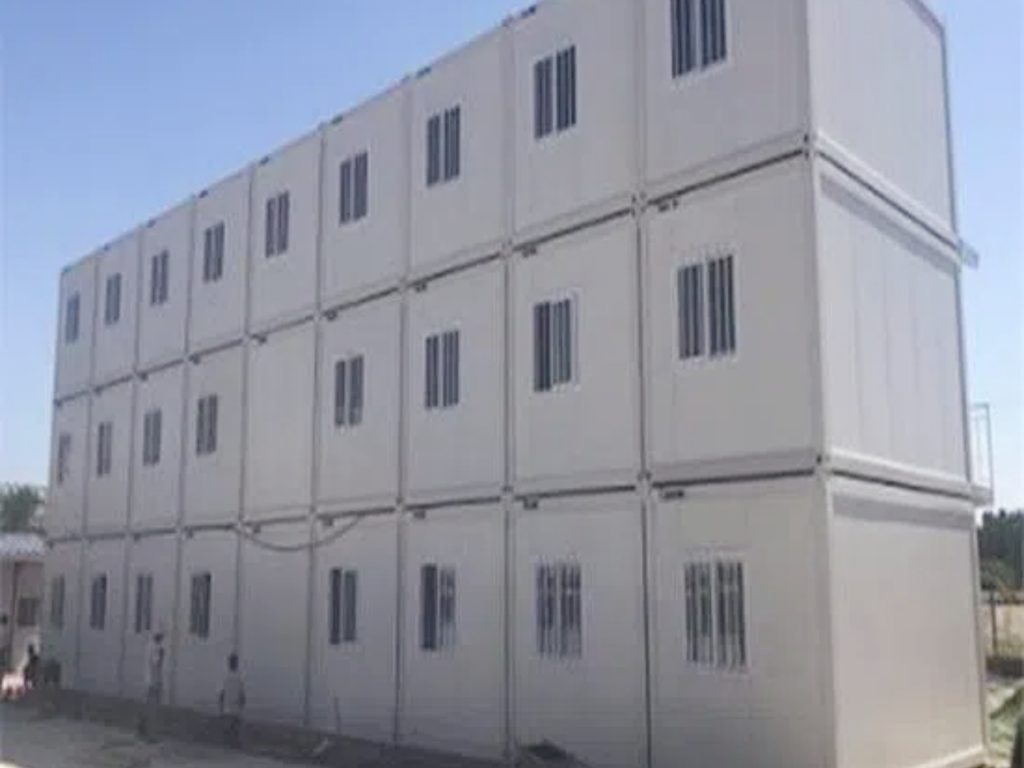
Educational Sector: Modular Classrooms for Expanding Student Population
Faced with a sudden increase in student enrollment, a local school district turned to Lida Group for a solution to accommodate the additional students without disrupting ongoing classes. Lida Group provided modular classrooms that could be seamlessly integrated into the existing campus. These units were equipped with state-of-the-art educational tools and comfortable seating arrangements, ensuring an optimal learning environment. The quick installation process meant that students could move into their new classrooms almost immediately, alleviating overcrowding issues. Teachers and administrators commended the high quality of the temporary structures, noting their similarity to permanent classrooms in terms of functionality and comfort. The district’s leadership highlighted the cost savings achieved through this flexible solution, emphasizing its value in addressing unforeseen growth.
Healthcare Sector: Mobile Medical Clinics for Rural Communities
In an effort to improve access to healthcare in rural and underserved regions, a nonprofit organization collaborated with Lida Group to establish mobile medical clinics. These container-based facilities were designed to be fully equipped with examination rooms, diagnostic equipment, and pharmaceutical storage. The mobility of these units allowed healthcare providers to reach remote villages, offering much-needed medical services directly to the communities. The modular design facilitated easy expansion and reconfiguration based on patient volume and service needs. Patient testimonials highlighted the significance of these mobile clinics in bridging gaps in healthcare delivery, particularly for those who would otherwise face considerable travel distances to receive treatment. The organization’s reports indicated a marked improvement in health outcomes, attributing this success to the strategic deployment of Lida Group’s prefab buildings.
These case studies illustrate the broad spectrum of applications for Lida Group’s prefab construction solutions, showcasing their capability to address diverse challenges across various sectors. From residential and commercial applications to industrial, educational, and healthcare projects, these structures consistently deliver practical, cost-effective solutions that meet and often exceed client expectations. Their proven track record of success underscores Lida Group’s position as a leader in innovative modular construction, capable of transforming temporary needs into lasting impacts.
Future Trends and Innovations in Prefab Construction
As we look towards the future, Lida Group remains committed to staying ahead of emerging trends and continuously innovating to meet the evolving needs of their clients. Several key areas of focus include advancements in technology, sustainability initiatives, and enhanced customization options.
Firstly, technological integration is poised to revolutionize the construction industry. Lida Group is exploring the incorporation of Internet of Things (IoT) devices into their prefab buildings. These smart buildings will feature connected sensors that monitor everything from temperature and humidity levels to occupancy rates and energy usage. Real-time data analytics will enable proactive maintenance, optimizing performance and extending the lifespan of the structures. Additionally, augmented reality (AR) and virtual reality (VR) technologies may soon be employed to enhance the design and planning phases, allowing clients to visualize their projects in immersive detail before construction begins.
Sustainability remains a cornerstone of Lida Group’s innovation strategy. They are actively researching and implementing green technologies that reduce the environmental impact of their buildings. Solar panels integrated into the roof design can generate renewable energy, either powering the building itself or feeding back into the grid. Enhanced insulation materials and water recycling systems are being developed to lower energy consumption and conserve resources. Moreover, Lida Group is investigating the use of recycled steel and other eco-friendly materials in their construction processes, aiming to minimize waste and promote circular economy principles.
Customization is another area where Lida Group seeks to push boundaries. Advanced software tools are being leveraged to offer greater design flexibility, enabling architects and engineers to collaborate closely with clients to create bespoke solutions. Clients will have the opportunity to choose from a wider range of facade materials, finishes, and interior configurations, tailoring each building to reflect their brand identity and operational requirements. Dynamic lighting systems and interactive surfaces could add an extra layer of personalization, making each structure unique and engaging.
Safety enhancements continue to be a priority. Smart sensor systems embedded within the metal structures will detect potential hazards such as gas leaks, fire outbreaks, or structural weaknesses, triggering alerts for immediate action. Fire-resistant coatings and barriers will be further improved to protect occupants and assets. These innovations not only enhance the security of the buildings but also instill confidence in users.
In summary, Lida Group’s focus on integrating advanced technologies, promoting sustainability, and offering enhanced customization positions them well to navigate the future landscape of commercial development. By embracing these innovations, they aim to provide unparalleled value and satisfaction to their clients, solidifying their reputation as a trusted partner in the construction industry. Whether it’s constructing state-of-the-art industrial facilities, modern retail spaces, or any other type of commercial building, Lida Group stands ready to deliver excellence with every project.
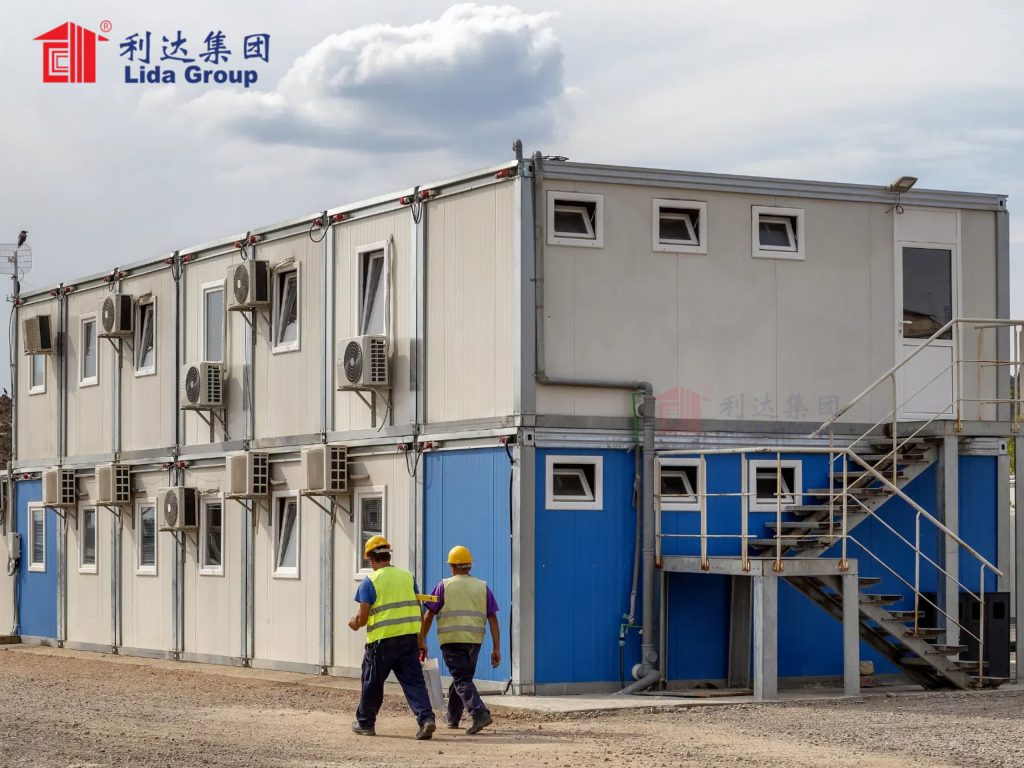
Conclusion
In conclusion, Lida Group has established itself as a trailblazer in the domain of prefab construction, offering innovative and cost-effective solutions that are both versatile and highly adaptable. Through their commitment to quality, sustainability, and customer-centric services, they have positioned themselves as leaders in the construction industry. The benefits of their prefab buildings—ranging from rapid deployment and reduced costs to enhanced quality control and environmental responsibility—are evident across various sectors, from residential and commercial applications to industrial, educational, and healthcare projects.
The comprehensive suite of services provided by Lida Group—from initial consultations and detailed planning to fabrication, installation, and post-construction support—ensures a seamless experience for clients. This holistic approach not only streamlines the construction process but also fosters long-term relationships built on trust and mutual success. Client testimonials and case studies serve as powerful evidence of Lida Group’s capabilities, showcasing successful projects that highlight their ability to transform challenges into opportunities.
Looking ahead, Lida Group’s emphasis on sustainability, customization, and technological integration places them in an advantageous position to lead the future of modular construction. As they continue to innovate and push boundaries, Lida Group remains dedicated to providing unparalleled value and satisfaction to their clients. Whether constructing state-of-the-art industrial facilities, modern retail spaces, or any other type of commercial building, Lida Group stands ready to deliver excellence with every project. Their unwavering focus on excellence and innovation cements their reputation as a trusted partner in the construction industry, ensuring continued success and growth in the years to come.
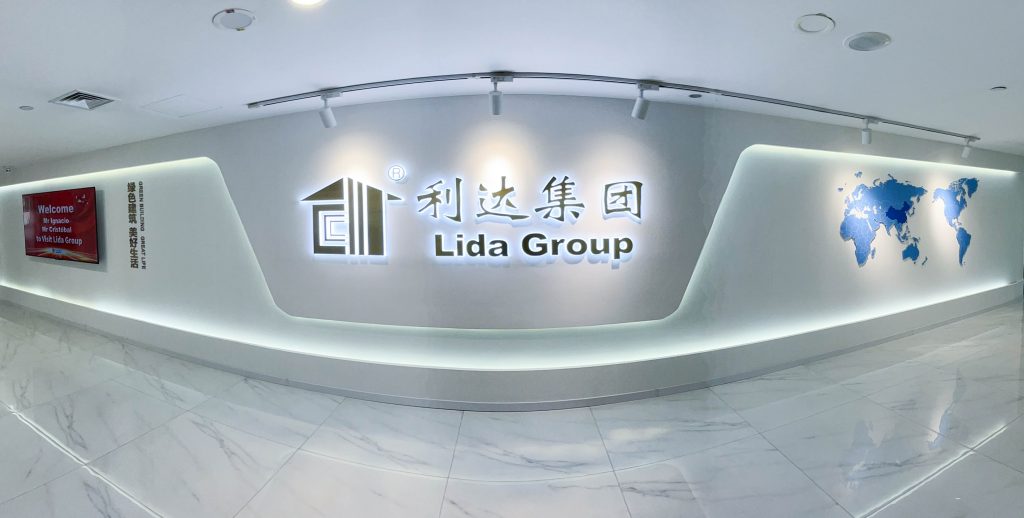
Related news
-
Lida Group Achieves the Ideal Balance with Cost-Effective Steel Structure Construction for High Quality Metal Building Projects
2025-10-29 15:26:28
-
Lida Group Launches New Prefab Mobile Container House Series
2025-10-29 15:32:45
-
Innovative Temporary Container Building Solutions by Lida Group
2025-10-29 15:36:41
contact us
- Tel: +86-532-88966982
- Whatsapp: +86-13793209022
- E-mail: sales@lidajituan.com


